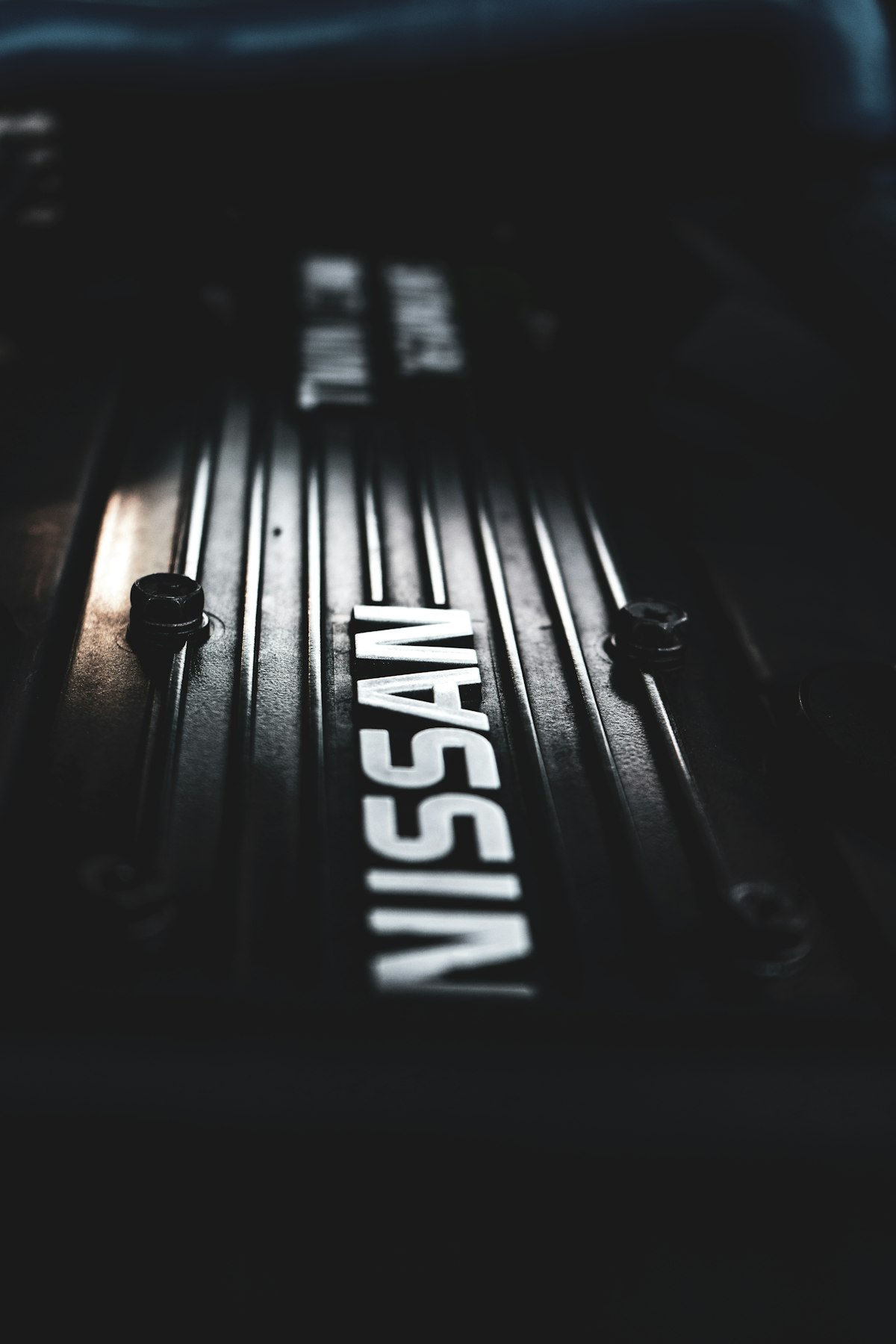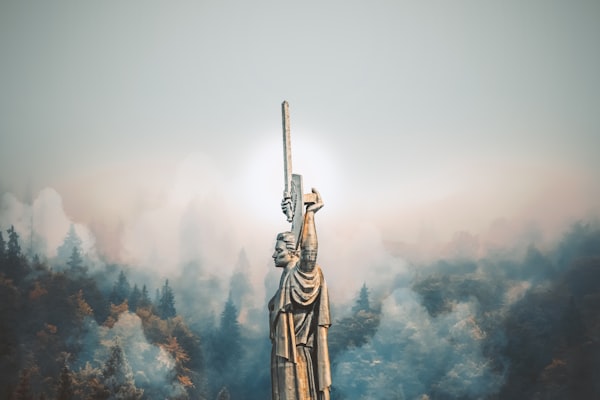Great Escape Part 1: Carlos Ghosn Spirited Away From Tokyo
In 2017, Carlos Ghosn's success story was the envy of his peers, but by the end of 2018, he was in jail. And by 2019, he was out of it and how.

If you are a Game of Thrones fan then you know of Nikolaj Coster-Waldau, whose portrayal of Jaime Lannister in the epic web series left many awestruck. Nikolaj made his Hollywood debut in Ridley Scott’s 2001 directorial Black Hawk Down, portraying the character of the decorated US soldier Gary Gordon. Gordon was awarded a medal of honor posthumously for his part in the botched-up operation to nab the warlord, Mohammad Farrah Aidid, from the Somalian capital of Mogadishu in 1993.
The Three Soldiers
Gordon was inducted into the US army through a now-defunct recruitment drive aimed at catching them young. The US army in the 1970s started a program that recruited youngsters passing out of high schools, but soon gave up on it because of the high attrition rate. Gordon was among a batch of 169 youth recruited under the drive. By the time the grueling Special Force training was over, only three of the original 169 cadets remained. Gary Gordon was one; John Carl, now a policeman in Los Angeles, the second; the third was Michael Taylor, who was on July 19, 2021, convicted by a Japan court of aiding the escape of the CEO of Nissan-Renault-Mitsubishi alliance Carlos Ghosn from Japan. A rescue operation so daring that none could believe that it had been pulled off.
The Rise and Rise of Ghosn
Carlos Ghosn cut his teeth in corporate world working at the tire manufacturing major, Michelin, between 1978 and 1996. He carried forward the craft to Renault in 1996. As the executive vice president at the French automobile giant, he restructured the company operations to make it flush with money. In 1999, when Renault allied with the Japanese car manufacturer Nissan, the then 45-year-old Ghosn assumed the role of Chief Operating Officer of Nissan. In 2001, he was made Nissan’s Chief Executive Officer after pulling the company from the brink of bankruptcy in 1999 to profitability in 2000. Under his stewardship, Nissan, which reported a net loss of $6.50 billion in 1999, recorded a profit of $2.7 billion in 2000.
Almost all business magazines, including Fortune, celebrated his stellar rise and hailed him variously as Mr. Fixit and The Cost Killer. At the height of his popularity, he was unsuccessfully courted by American automakers Ford and General Motors. He continued rising through the ranks and eventually was made the CEO and chairman of Nissan, and later the CEO of Renault – the only person till date to lead two Fortune 500 companies simultaneously. Another feather was added to his cap when he managed to rope the embattled automobile giant, Mitsubishi, into the Renault-Nissan Alliance to make it the fourth largest grouping after Toyota, Volkswagen AG, and General Motors in 2016. In 2017, his success story was the envy of his peers. By the end of 2018, he was in jail. And by 2019, he was out of it and how!
The Arrest

Ghosn was arrested on November 19, 2018, when he landed in Tokyo after coming from Lebanon. Ghosn’s top aide Greg Kelly was arrested the same day in a similar fashion. Ghosn was accused of under-reporting his earnings at Nissan, while Kelly was charged with aiding the former in fudging the account books. Nissan’s internal audit team had flagged concerns that Ghosn had misused the company funds to foot personal expenses, including buying plum real estates in Paris, Rio, and Beirut. Ghosn, in cahoots with Kelly, had allegedly grossly underrepresented his salary to circumvent a 2010 Japan corporate disclosure rule, which mandated all executives with salary upwards of $880,000 to disclose their earnings. Ghosn did not want to publicly declare his salary, as the rule change came shortly in the aftermath of the 2008-10 recession and reporting his high take home would have meant a public relations disaster.
To put things into perspective, Ghosn drew around $15 million in the financial year ending March 2019. According to the Wall Street Journal:
It was more than twice what the other nine top executives of the company were making together
To counter this, the Japanese prosecutors alleged, Ghosn made Nissan postpone a part of his salary 2010 onward, payable only at his retirement. The total payable amounted to at least $80 million at the time of his arrest. The same year he made Nissan float a company to make venture investments. The prosecutors alleged that he linked an elaborate network of shell companies to the Nissan-founded venture firm and used its money to fund his extravagant life and make costly purchases. If convicted, he stood to face 15 years of jail time, but before that he had to face a notoriously lengthy Japan court trial, which according to some reports could span five years.
Boardroom Coup and Hostage Justice
But were it just the dubious financial transactions that led to Ghosn’s troubles? Well, not entirely. Ghosn was Renault’s man and wanted to give the French automaker more say in the alliance. In the corporate world, the path to profitability is paved by haircuts and trimmings. What Ghosn had done was to streamline the entire Nissan operations by upending its traditional models. While it paid rich dividends to Nissan, as was witnessed in the transformed balance sheets, it also earned him enemies in the Japanese executive class, which feared Ghosn was robbing the firm of its Nippon essence. Further, Ghosn wanted to supplant Hiroto Saikawa as Nissan CEO with Kelly. That Saikawa was cherry picked by Ghosn is a tale for another time. It was Saikawa who ordered an internal audit based on reports that Ghosn had performed some sleight of hand to hide his earnings. Ghosn was out outmaneuvered by Saikawa and the planned boardroom coup devised by the former never came to be. Ghosn and Kelly were invited for an emergency board meeting on November 19, 2019, and both were arrested on landing.
According to many news sources, Japan has a conviction rate of over 99%. This high figure is largely due to Japan’s notorious ‘hostage justice’ system, wherein a lengthy pre-trial procedure is employed to break down the accused into pleading guilty. Ghosn was afraid that he would not survive the ordeal and die in a Japanese prison. During the long pre-trial period, Ghosn had no access to mobile phones or the internet. He was under 24-hour surveillance. The sole permitted excursion was a walk down to a nearby five-star hotel for 30 minutes. Constantly tailed by Nissan sleuths, Ghosn had transformed from a celebrity executive into a common criminal. His despondency rose when the officials denied him permission to get in touch with his wife Carole without the court’s permission.
Captain America
Michael Taylor was 18 when he joined the US army. Vanity Fair says that after leaving the US Army, Taylor started a risk assessment firm named American International Security Corporation, which specialized in extracting people from hostile territories. His army background came as an added advantage in this difficult line of work. Over several years, he built his reputation as the go-to man to extract people held by ultras or kidnappers from South America to Africa.
He once provided security cover to a Lebanese businessman salvaging a business prospect in Iraq in the aftermath of the US bombings. The Lebanese businessman was so impressed with Taylor’s brand of work that the former's word-of-mouth advertisement brought the latter more business. Over time, Taylor came to be known as Captain America, who could penetrate deep into the enemy territory and pull off miracles.
The Beginnings
Taylor was spending time with his 28-year-old son in Massachusetts in 2019 when the Lebanese businessman called him, asking whether he was up for a job. Taylor had to take it up, for though he had profited from the US War on Terror, the ethics of his methods had raised quite a few eyebrows. Finally, when the long arm of law caught up with him, he had to do time in prison. He was broke and needed the money. He said yes.
The Lebanese businessman briefed him about the work and said this was a rescue mission without a parallel because it would be the first time Taylor would be extracting a person from a functional democracy and not a collapsing country. Taylor agreed and called on a number given by the Lebanese contact. The number belonged to Ghosn, whose well-wishers had smuggled a burner phone to him.
Working Out the Details

Taylor and Ghosn over the next few days worked out the details. Though Ghosn was always tailed by two plainclothesmen hired by Nissan, he was not forced to wear ankle monitors. As his house was under constant surveillance, the only place the escape could be pulled off was at the hotel, where he regularly had his lunch. Taylor over the next few weeks cobbled together a team of professionals. The team mulled the sea route, but struck it off as it was too risky. Then, they decided that Ghosn had to be spirited away in a plane.
After a round of recce, the team found out that though Ghosn’s house was under CCTV surveillance, the footage was not checked daily. So, if Ghosn left the house and did not turn up, the officials would be none the wiser until two or three days later. While his 30-minute daily excursion was tracked by the Nissan sleuths, the report of his vanishing would take hours to reach the police, giving them time to pull off the rescue. Now, the team went about sifting for airline companies that could offer them discrete service. While most services refused, a Turkish carrier agreed, claiming it was used to clientele that preferred anonymity. While the mode of travel was settled upon, the question remained: How to get him on board by giving the sleuths a slip.
Box and X-Ray
Taylor’s team decided Ghosn had to be packed into a box and then loaded on the plane. Here, they were faced with another problem: How to evade the X-ray scanners at airports. The team laboriously conducted a SWOT analysis of at least six airports in Japan, before finalizing Kansai. The recce at Kansai airport had revealed a flaw in the security system; the X-ray scanner there was not large enough to scan big boxes. Now, the team set about procuring the right box. They decided that the boxes designed to carry large loudspeakers were suited for their purpose. After procuring the boxes, the team customised it for their task; they added casters to the box for easy manoeuvrability and drilled holes in its bottom to enable Ghosn to breathe. Ghosn was told to be ready for the operation on December 29.

Around 2.30 pm, Ghosn walked out of his home and headed to Grand Hyatt, where Taylor and his accomplice were waiting. After a change of dress, the three persons walked out from the hotel and reached the Tokyo station undetected. By 4.30 pm, they were on a Bullet train and four hours later in Osaka, where Ghosn was carefully packed into a box and driven to the Kansai airport. Even luck was on their side as it later emerged that the sleuths had not tailed Ghosn on that day. At 10.30 pm, the boxes were loaded on to the plane and at 11.10 am, they were airborne. They charted the course carefully, such that they did not fly over any country that had an extradition policy with Japan. After a six-hour flight, the plane landed in Istanbul, from where Ghosn boarded a chartered flight to Beirut in Lebanon. A few hours later, Ghosn was with his wife in Beirut, a free man there, but a fugitive in the eyes of Japanese officials. However, they could do nothing more than grimace as Lebanon had no extradition treaty with Japan.
The Aftermath
Rumours did the rounds that Ghosn had paid $30 million for the rescue operations, but Taylor later told Vanity Fair that the mission cost $1.3 million to Ghosn. However, Taylor could not enjoy the fruits of his labour as he was arrested by the Massachusetts police in May 2020. The Japanese officials had pulled the diplomatic strings. They had been humiliated and now, they were baying for vengeance. After the arrest, the father-son duo unsuccessfully contested Japan’s request for their extradition. In March 2021, they were brought to Tokyo, where they pleaded guilty.
Taylor senior was sentenced to 24 months, while his son was slapped a 20-month term on July 19. Tendering a teary apology, according to the WSJ, Michael Taylor said:
I regret ever agreeing to help Mr. Ghosn. It wasn’t done for money, because I am so far in debt in legal fees
The $1.3 million he received in lieu of his services were mostly spent in the attempt to ward off extradition. And this was not the first time he had pleaded guilty and served time to avoid a painful and protracted legal tussle. And as regards Ghosn, the multi-millionaire is currently in Beirut, a celebrity there, too, courted by the Lebanese president and top honchos, while those who helped him escape languish in jail, broke and broken.




